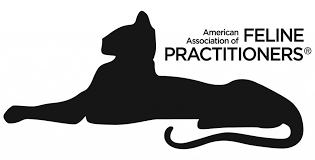 April 30, 2020
April 30, 2020
The American Association of Feline Practitioners Releases Retrovirus Educational Toolkit to the Veterinary Community
The American Association of Feline Practitioners (AAFP), a leading advocate for improving education and standards of feline care, released a new Retrovirus Educational Toolkit to help veterinary professionals diagnose and manage Feline Leukemia Virus (FeLV) and Feline Immunodeficiency Virus (FIV). The toolkit is built on the AAFP’s 2020 Feline Retrovirus Testing and Management Guidelines, published in the January 2020 issue of the Journal of Feline Medicine and Surgery.
“The release of the 2020 AAFP Feline Retrovirus Testing and Management Guidelines provided groundbreaking information on our understanding of FeLV and FIV,” stated Kelly St. Denis, DVM, DABVP (Feline) and 2020 AAFP President. “There have been many advances in our understanding of how these viruses infect cats and how we can best diagnose, manage and prevent them. I am delighted to see this new toolkit come to fruition, as it takes this cutting-edge information and provides it in easy-to-access, bite-sized pieces that can be applied directly in practice in the moment. For busy practitioners, this provides quick guidance when needed the most.”
FeLV and FIV infections are associated with a variety of clinical signs and can impact the quality of life and longevity in a cat. The toolkit offers veterinary professionals access to the key feline retrovirus testing and management information for assessing patients who may be facing infection. Formatted for easy access and review, the toolkit offers professionals the background and knowledge to prevent, diagnose and manage FeLV and FIV infections.
The AAFP offers the flexibility of both digital and printable versions of the toolkit (PDF format), making the content easy-to-access in the practice. Navigation on the website is intuitive and straightforward, with information focused on transmission, outcomes of infection, diagnosis, prevention, management and treatment. The toolkit provides an additional helpful section covering frequently asked questions (FAQs), as well as a section covering useful client resources. Knowing the retrovirus status of every cat is of the utmost importance to prevent new infections of FeLV and FIV.
Cat caregivers should have their cats tested as soon as possible after they are adopted or acquired, following exposure to an infected cat or to a cat of unknown infection status, prior to vaccination against FeLV or FIV and whenever clinical illness occurs. It might not be possible to determine a cat’s infection status based on testing at a single point in time and therefore repeat testing using different methods could be required.
Although FeLV and FIV infections can be associated with clinical disease, some infected cats, especially those infected with FIV, can have a good quality of life for many years. Management of infected cats is focused on effective preventive health care strategies and prompt identification and treatment of illness, as well as limiting the spread of infection.
The AAFP has also developed resources for cat caregivers to help them understand these two common retroviruses. These resources can be found at catfriendly.com/felv and catfriendly.com/fiv. The AAFP would like to thank IDEXX Laboratories for their educational grant to develop this toolkit and for their commitment to help the veterinary community improve the lives of cats. We also would like to thank Kelly St. Denis, DVM, DABVP (Feline) and 2020 AAFP President, for chairing the toolkit and the AAFP Retrovirus Testing and Management Guidelines panel for all their hard work in developing this information.
